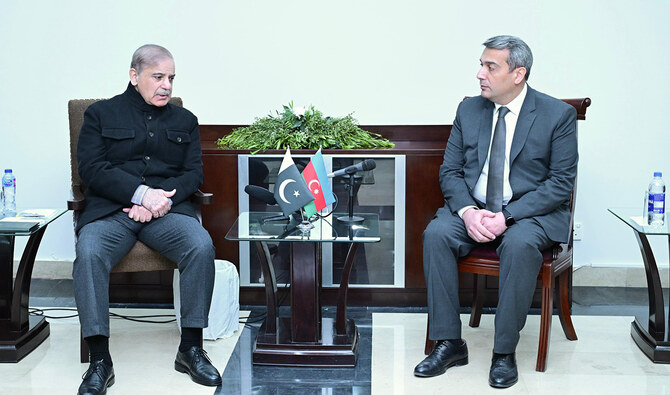ISLAMABAD: Prime Minister Shehbaz Sharif said on Friday he was “very hopeful” of signing a deal with the International Monetary Fund (IMF) within January on a stalled ninth review of the country’s current funding program.
The IMF on Thursday said its mission would visit Pakistan on January 31 to discuss the loan program, as Islamabad desperately seeks another loan tranche to shore up its foreign exchange reserves, which have declined to a staggering $3.6 billion, not even enough to cover a month of imports.
Pakistan secured a $6 billion IMF bailout in 2019, which was topped up with another $1 billion last year, but the lender then stalled disbursements in November due to Pakistan’s failure to make more progress on fiscal consolidation and economic reforms.
“I am very hopeful that we will sign a deal with the IMF this month and will be able to overcome our [economic] difficulties,” the PM said while addressing an event in Islamabad. “After that, our multilateral and bilateral institutions will also be able to work alongside the government.”
His remarks came as the Pakistani rupee fell 9.6 percent against the dollar in the inter-bank market on Thursday, the biggest one-day drop in over two decades, a day after foreign exchange companies removed a cap on the exchange rate.
“These are tough times… without exaggeration, I can say that the conditions were very tough when we formed a government [in April last year],” Sharif said. “But by the mercy of God, this coalition setup was able to work day and night [for the betterment of the country]. I can say with certainty that we will successfully come out of this [economic crisis] situation.”
As a result of fast-depleting foreign reserves, the government has restricted the import of goods, including industrial raw materials, to stop dollar outflows.
The prime minister said the government had created a priority list of imports in view of the forex situation so that the country could continue to function.
“We have made a list of priorities in view of our foreign reserves,” he said. “Exporters, food items, and medicines, among other items without which a country cannot [survive], will continue to be imported.”
Multilateral and bilateral financing pledges for Pakistan’s effort to rebuild after devastating floods last year are also tied to the country getting the green light from the IMF.
The IMF wants Pakistan to reestablish a market-based mechanism to determine the value of the Pakistani rupee. Such a mechanism is a key prior action for the country to receive IMF support, but it has fallen short of this until this week.


















